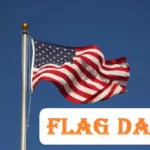Asteroid Day is a day of global observance celebrated to raise public awareness of the risks of asteroid impacts. It is observed annually on 30 June and aims at educating people about the risks and opportunities of asteroids. The day is observed with events and seminars focused on providing educational resources and regular communications to the global audience via different digital platforms. In this article, you will find significant details related to Asteroid Day 2023 such as its importance, celebration, and history along with some interesting facts on asteroids.
Asteroid Day Date 2023
Below mentioned are the upcoming dates for Asteroid Day for the upcoming 5 years.
| Event | Date | Day |
| Asteroid Day 2023 | June 30, 2023 | Friday |
| Asteroid Day 2024 | June 30, 2024 | Sunday |
| Asteroid Day 2025 | June 30, 2025 | Monday |
| Asteroid Day 2026 | June 30, 2026 | Tuesday |
| Asteroid Day 2027 | June 30, 2027 | Wednesday |
Asteroid Day 2023 Overview
| Event | Asteroid Day 2023 |
| Date | June 30, 2023 |
| Day | Friday |
| Declared by | Dr. Brian May, Rusty Schweickart, Grig Richters and Danica Remy |
| Observed by | Worldwide |
| Purpose of celebration | To raise public awareness of the risks of asteroid impacts. |
| Frequency | Annual |
Significance of Asteroid Day
The main objective behind observing Asteroid day is to educate the public about the importance of asteroids, their role in the formation of our solar system, their impact on space resources, and how to defend our planet from future impacts. Most people have no idea that asteroids pose a threat to our safety and how can they protect themselves in case an asteroid hits. Asteroid Day provides a platform to fight this lack of awareness of knowledge about asteroids.
History of Asteroid Day
To launch Asteroid Day, members of the asteroid community drafted and released a petition called the 100x Declaration. The declaration got signed by hundreds of astronauts and also by thousands of prominent individuals. Finally, Asteroid Day was established in 2014 by famed musician and astrophysicist Dr. Brian May, Apollo 9 astronaut Rusty Schweickart, filmmaker Grig Richters, and B612 Foundation President Danica Remy. June 30 was chosen as the day of celebration to mark the date of Earth’s largest asteroid impact in recorded history, also known as the Siberia Tunguska event.
Check: Important days in June
UN adoption of Asteroid Day
The Association of Space Explorers and Romanian astronaut Dumitru Prunariu submitted a proposal for the Asteroid Day celebration to the United Nations in February 2016. The proposal was accepted by the UN Scientific and Technical Subcommittee. Further in June 2016 the UN Committee on the Peaceful Uses of Outer Space included the recommendation in its report. On December 6, 2016, the report was presented for approval and adopted by the United Nations General Assembly in its 71st session.
Celebration of Asteroid Day
Various events and activities to mark Asteroid Day are held around the world. The main bodies to organize these activities are space agencies, museums, universities, clubs, and educators all around the world. These events generally include lectures, short story contests, live concerts, and broader community events. Other than this, the Asteroid Foundation manages local programs including the Asteroid Day Gala and Technical briefings in Luxembourg to celebrate the day. The foundation also promotes worldwide awareness of the opportunities and challenges surrounding asteroids and the emerging space economy.
As an individual, you can celebrate Asteroid day by attending any local event going on nearby. If there is no such event, you can even organize an event of your own. For the promotion of your event, you need to register your idea with the Asteroid Foundation and can also get resources from their website for your event.
About Asteroids
Asteroids are small bodies made primarily of rock, metal, and water that orbit the Sun. They are found mostly in the area between the orbits of Mars and Jupiter known as the asteroid belt. Asteroids are believed to be leftovers from when the solar system was formed. Every asteroid is unique and they come in different shapes and sizes ranging from 1-meter rocks to a dwarf planet of almost 1000 km in diameter.
Asteroids & Interesting Facts about them
Let’s check out some interesting facts about asteroids this Asteroid Day.
- Asteroids can have moons, rings, and tails.
- The first asteroid was discovered by Giuseppe Piazzi in 1801 and was named Ceres.
- The word asteroid was coined by astronomer William Herschel.
- NASA’s NEAR was the first spacecraft to orbit and land on an asteroid.
- Asteroids are rich in minerals and water but are too small to support life.
- Near-Earth asteroids can threaten all life on the planet.
- The largest meteorite found on Earth is the Hoba meteorite discovered in Namibia in 1920.
- The Hoba Meteorite is also the heaviest known meteorite weighing 66 tons.
- The Vredefort crater in South Africa is formed by the biggest meteorite that hit Earth around 2 billion years ago.
- This meteor is believed to be bigger than the one that killed dinosaurs.
Frequently Asked Questions
June 30 every year
The asteroid 2023 CX1 hit Earth recently on February 13, 2023, and turned into a fireball over Europe.
The Chicxulub asteroid wiped out most dinosaurs and three-quarters of the plant and animal species from the Earth.











